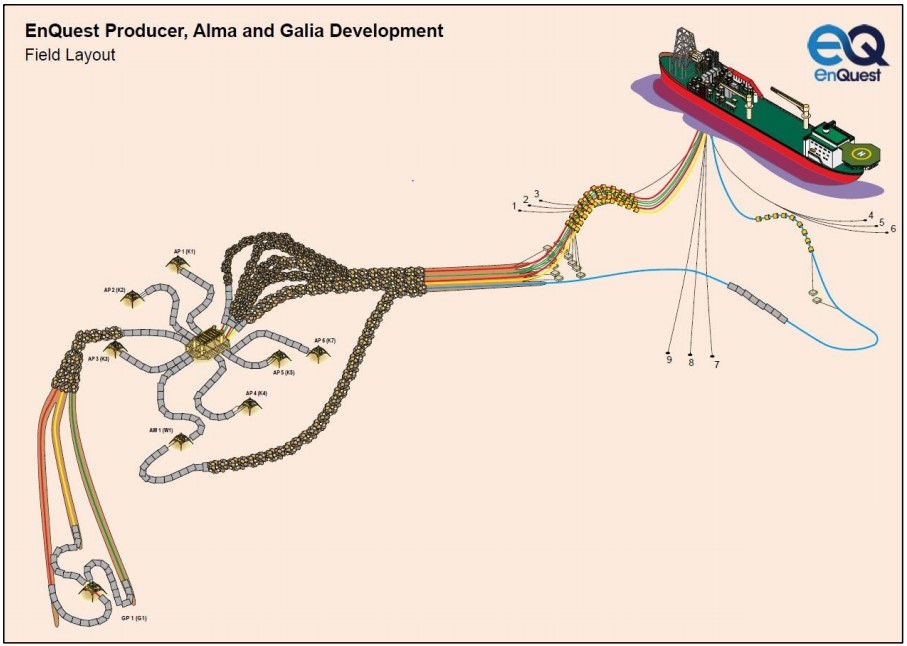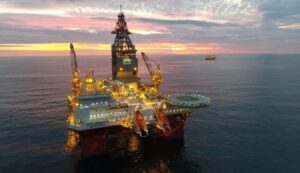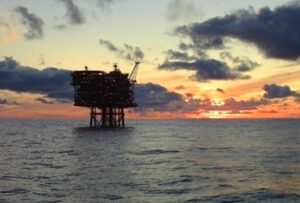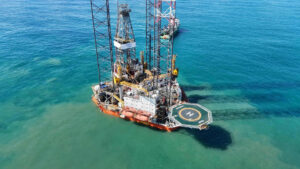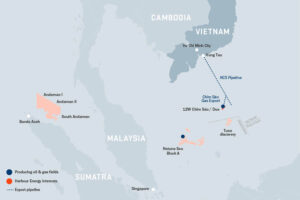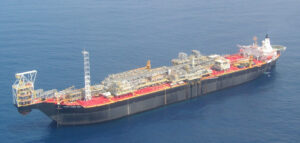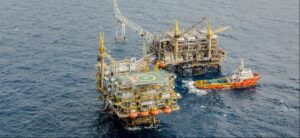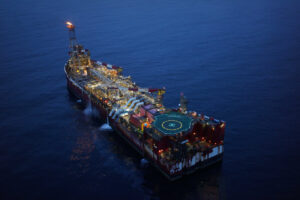EnQuest cleared to decommission Alma and Galia FPSO
UK oil and gas company EnQuest has received approval from the UK authorities for its decommissioning plan for the FPSO working on the Alma and Galia fields off the UK as well as associated subsea installations and pipelines.
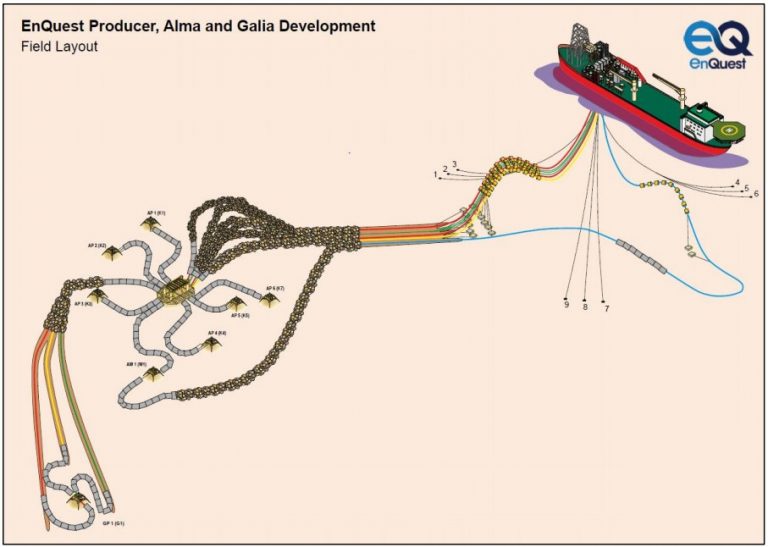
The Alma and Galia oil fields are situated in blocks 30/25c and 30/24b on the United Kingdom Continental Shelf and operated by EnQuest’s subsidiary – EnQuest Heather Limited. The fields are located some 282 kilometres northeast of the Northumberland coast in water depths of 77 meters.
The Alma and Galia fields were developed as a single joint development and came onstream in late 2015. They produce via subsea wells tied-back to the FPSO vessel via one central hub for all fields.
Alma has six production wells and one water injector, while Galia produces via one well. The cessation of production documentation for the Alma and Galia fields is currently under consideration by UK’s Oil and Gas Authority.
This month, the UK authorities approved the removal of the FPSO to shore for recycling unless alternative re-use options were found to be viable and more appropriate.
Eight of the nine mooring anchor piles will be left at least one meter below the seabed, with the remaining one at 0.75 meters below the seabed, while the mooring chain will be cut locally to the mooring pile and buried to one meter below the seabed.
The Alma and Galia subsea installations including wellheads and production manifolds will be removed from the seabed. It is proposed to use reasonable endeavours to cut the piles associated with the Alma manifold at one meter below the seabed.
As for the flexible risers, pipelines, electrical cables, jumpers, and umbilical pipelines associated with the Alma field, they will be cleaned and flushed, and together with the riser bases will be fully recovered to shore. The same will be done with the Galia pipelines. It is worth stating that no third-party pipeline crossings will be disturbed as a result of the decommissioning proposals.
This is done in order to comply with OSPAR requirements to leave an unobstructed seabed which removes a potential obstruction to fishing operations and maximizes recycling of materials
According to the decommissioning plan, all wells on the two fields will be decommissioned using a semi-submersible drilling rig.

